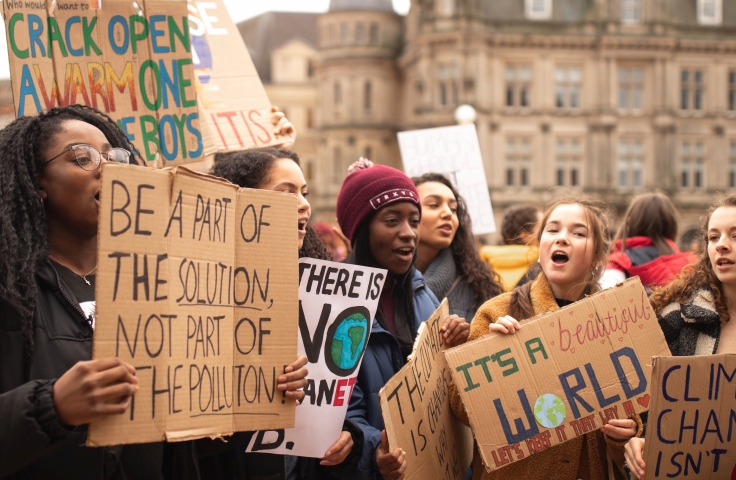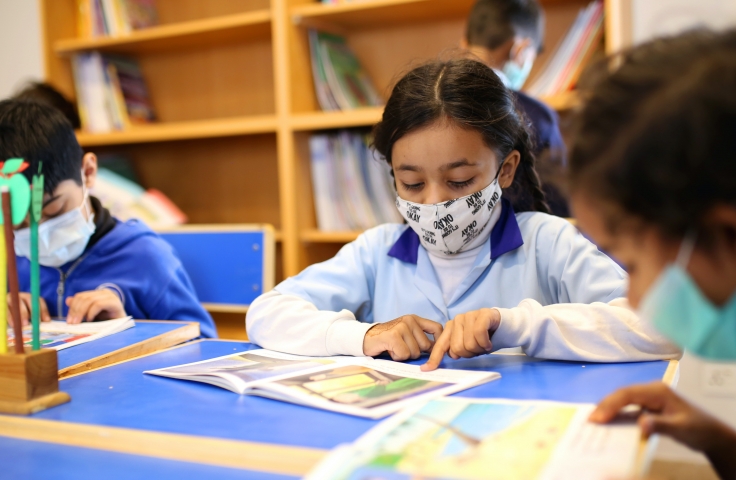Dr Noam Peleg
Much of the debate around the Federal Government's Religious Discrimination Bill centres around the legalisation of the discriminatory practice where religious schools exclude LGBTQI+ students, teachers or students whose parents are in a same sex relationship. But the derogating effects of the bill are broader than just the ability to expel students, as it violates many other rights of children, and of adults.
The Bill enables some groups to deny services to people based on their faith, identity or lifestyle. It is a step backwards in what is an already weak domestic human rights protection system. It is based on the false pretence that the ability to exercise one’s religion in Australia is in any danger, and that freedom of religion is under threat in the wake of marriage equality and push-back against celebrities who make homophobic comments on social media.
The Bill tries to remedy this non-existing problem by enabling individuals and institutions to act upon what they consider to be their faith in a way that results in discriminatory treatment of those who don’t share their point of view. Children or adults can be denied services at a shop or from taking a taxi, if the service provider acts “in good faith” and according to what they themselves considered to be their convictions. In that sense, the Bill’s title should be “Enabling Discrimination in the Name of Religion” because this is what it legalises.
The Bill has been criticised for violating the rights of the most vulnerable members of the community and for prioritising faith over people. The Parliamentary Joint Committee on Human Rights and the Senate Legal and Constitutional Affairs Committee found that the Bill might be incompatible with some of Australia’s obligations under international human rights law. But none of these reports, and most of the public debate about the Bill, have paid sufficient attention to the wider effects that the Bill can have on children, and their lives.
The Bill, and the sort of actions that would become legal if it adopted, violates a range of children's rights which are protected by the UN Convention on the Rights of the Child. This international mechanism, which Australia has voluntarily joined to in 1990, safeguards the rights of all children to non-discrimination, as well as their rights to education, to have their best interests taken into account as a primary consideration, to freedom of religion and conscious, and their unique right to development.
The Bill, however, overrides these rights and upholds the autonomy of adults. It doesn’t consider (nor protect) that children also have the right to freedom of faith. It doesn’t consider, in any sufficient terms, the discrimination that children, especially those who belong to religious minorities, experience. The Bill prioritises one set of beliefs, as held and exercised by adults, including members of extreme religious groups like those who crafted a contract presented to parents by the Citipointe Christian College in Brisbane, comparing same-sex relationships to bestiality.
Expelling a child from school based on her identity undermines their development, and prevents them for achieving their fullest potential – a right that they have under Article 6(2) of the UNCRC. It puts their healthy growth at risk, which can have life-long effects. In that sense, this Bill targets children, especially minority children, and puts their rights, lives and futures in danger.
LGBTQI+ adolescents commonly face persecution, including abuse and violence, stigmatisation, discrimination, bullying, lack of family and social support, or access to sexual and reproductive health services and information. In some extreme cases, they can also face sexual assault. Research shows that these experiences are linked to low self-esteem, higher rates of depression, suicide and homelessness. For these reasons the UN Committee on the Rights of the Child emphasises the need to ensure ‘the rights of all adolescents to freedom of expression and respect for their physical and psychological integrity, gender identity and emerging autonomy". It also urges States to repeal all laws criminalising or otherwise discriminating against individuals on the basis of their sexual orientation, gender identity or intersex status and adopt laws prohibiting discrimination on those grounds.
The Religious Discrimination Bill fundamentally contradicts these obligations. It is a Bill that provides freedom to those who want to humiliate others. It is a Bill that enables teachers and principals to harm the human dignity of their students, to further undermine their self-confidence and bodily image. It is a Bill that puts the lives of LGBTQI+ students at risk.
Discrimination, racism, homophobia, and transphobia are serious social problems, and the legal protection against discrimination, on all grounds, should be expanded. The Religious Discrimination Bill does the exact opposite.
Dr Noam Peleg is an Associate at the Australian Human Rights Institute and a Senior Lecturer at the Faculty of Law & Justice. His work focuses on international children’s rights law and its intersection with human rights law, childhood studies, and family law.

